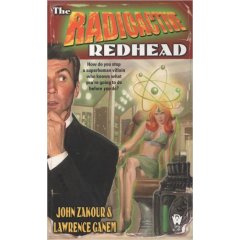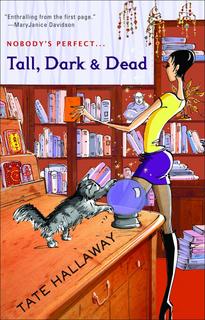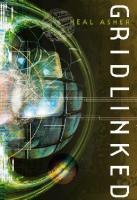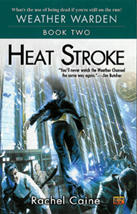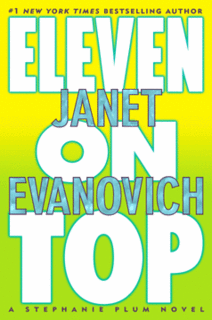Michele Hauf tagged me, so I'm going play the game and her seven questions:
Seven Things to Do Before I Die:
(1)--Become a member of the exculsive University Club on Summit Avenue. (Really, all I need is money to join, so I guess "make some money" should really be the answer instead) and/or attend a "Renaissance Weekend."
(2)--Be a best-selling author.
(3)--Learn Gaelic
(4)--Win a Hugo
(5)--Punch or be punched by Harlan Ellison
(6)--Be asked to be a commencement speaker at my alma mater (either high school or college) and turn them down.
(7)--Edit my own science fiction/fantasy magazine.
Seven Things I Cannot Do
(1)--Spell "Cannot." (I always think it's can not.)
(2)--Read quickly. (I have mild dyslexia.)
(3)--Drive a motorcycle. (Though I'd like to).
(4)--Dance. (I do it anyway, but, really, anything that requires coordination is out of my league.)
(5)--Leave the table without one more taste.
(6)--Keep my mouth shut. (I love to argue. It's actually my religion -- I was raised Unitarian.)
(7)--Answer questions like this concisely.
Things that Attract Me to Men
(1)--The "ratio." (Shoulder to waist.) Like my character Garnet, I do so love that triangular shape.
(2)--A sense of humor. (Has to have one, to get along with me.)
(3)--Brains. I dated a "gnarly" California surfer boy once who was quite pretty in my opinion, but, really, at the end of the day I like them at least as smart as me, which isn't actually asking for a whole lot.
(4)--Hair. I'll admit it. I like a guy with good hair. It doesn't have to be long or short (or even there, a bald guy can be very hot), but I can't stand it when otherwise hot guys like Brad Pitt get what I call the stupid-boy cut. Do something intentional with your hair, guys. And for God/desses' sake, DON'T CUT IT YOURSELF. See a professional.
(5)--A sense of adventure. Even if he's an armchair warrior, I like that warrior.
(6)--Fearlessness. I want a man unafraid of love.
(7)--Fangs. Okay, not really, but I saw them, I'd be very, very intregued.
Seven Things I say Most Often
(1)--"Dude, get out of the way!" (While driving.)
(2)--"Oops."
(3)--"Wait, wait.... one more thing."
(4)--"Actually, if I may interject..."
(5)--"If I had a million dollars, do you know what I'd do?"
(6)--"Just once it would be cool to win." (While losing at Hearts or Mah Jongg or Scrabble or....)
(7)--"I love you, even though you vex me." (To Mason and my SO.)
Books or Series I Love
(1)--The Weather Warden Series by Rachel Caine
(2)--Wandering Stars: An Anthology of Jewish Fantasy and Science Fiction edited by Jack Dann.
(3)--Nueromancer by William Gibson.
(4)--The Retrieval Artist Series by Kristine Kathryn Rusch.
(5)--Fahrenheit 451 by Ray Bradbury.
(6)--The Marid Audran series by George Alec Effinger.
(7)--The Stephanie Plum series by Janet Evonivich.
Movies I Can Watch Over and Over
(1)--"Star Wars: A New Hope."
(2)--"Bladerunner."
(3)--"The Matrix."
(4)--"Pillow Talk"
(5)--"Ladyhawke."
(6)--"Lost Boys."
(7)--"Sprited Away."
People I Want to Join In (Tag You're It)
(1)--Naomi Kritzer
(2)--Peg Kerr
(3)--Any of the Vampire Vixens
(4)--Rachel Caine
(5)--Neil Gaiman
(6)--Sharon Stiteler
(7)--Will Clark
